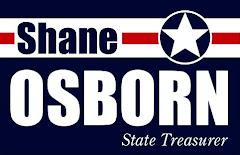The lengthy and infamous legal battle cause many Ecuadorians, as well as those I met in South and Central America, to question me about our electoral college. For the most part, their concerns can be summed up thusly:
"If the United States is supposed to be the global example of Democracy and be responsible for overseeing our elections, how then is your country unable to determine the outcome of your own President?"
That question, which to Americans may seem overly naive and simplistic, is a microcosm of a much larger issue: the United States, like it or not, sets the example of liberty for the rest of the world.
Today, I see the same type of question with the free market.
Egyptian officials were clear in their hesitation and mild disgust towards their country's efforts to convert (albeit slowly) to our economic system for over 15 years. Now, they are made to believe that the U.S. economy is broken. They do not dig into the details as to what caused our current financial crisis and are unaware that the Congress forced our lending institutions into making bad loans. They believe, as do most our own countrymen, that an open and transparent government mechanism could have prevented many of these problems.
Whether it's in the U.S. economy or other global markets, transparency is the only hope we have in returning trust and confidence to our financial system and the world in general. If the government is going to continue to use our taxes to pay for their projects, infrastructure and general well-being of our country, than we have every right to see a receipt for how those tax dollars are being utilized.
That's called accountability.
This was truly music to my ears to hear these Egyptian diplomats demand transparency in their own government and in the aid the United States provides around the world. While we will continue to disagree with many of the approaches used by Egypt in the realm of human rights and democracy issues, we did find common ground on a major aspect of how a government should be run.

